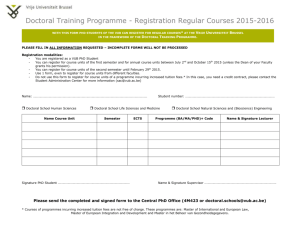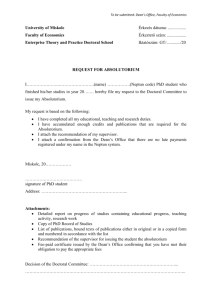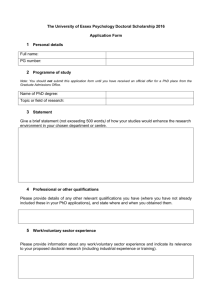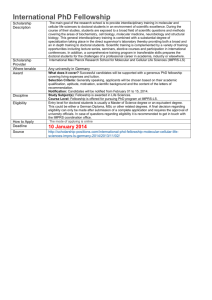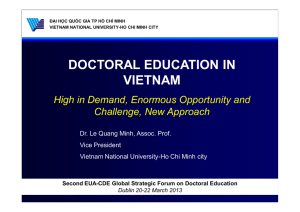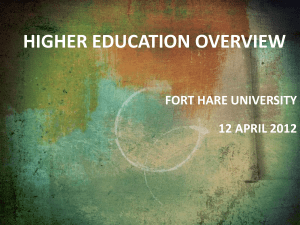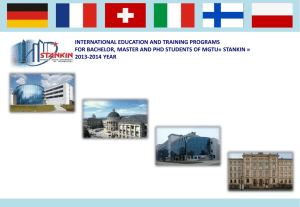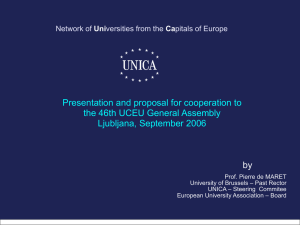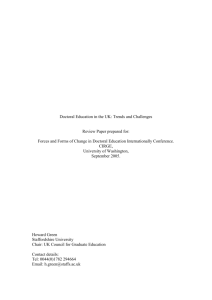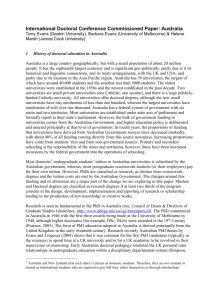First outline for a UNICA meeting of coordinators of doctoral education
advertisement
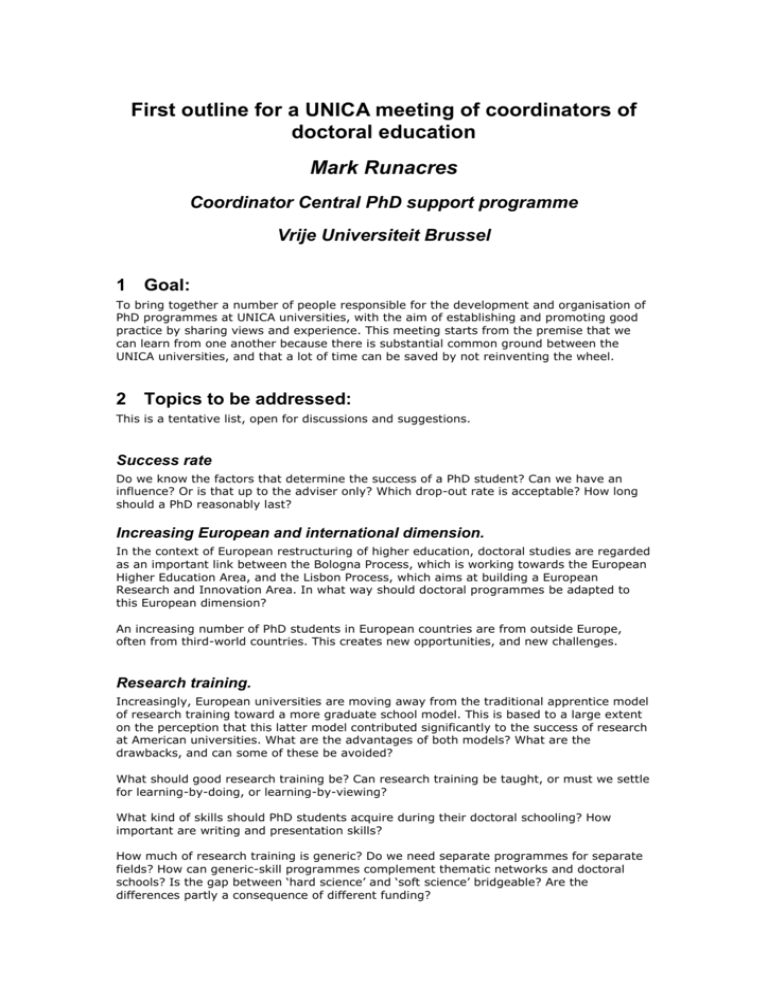
First outline for a UNICA meeting of coordinators of doctoral education Mark Runacres Coordinator Central PhD support programme Vrije Universiteit Brussel 1 Goal: To bring together a number of people responsible for the development and organisation of PhD programmes at UNICA universities, with the aim of establishing and promoting good practice by sharing views and experience. This meeting starts from the premise that we can learn from one another because there is substantial common ground between the UNICA universities, and that a lot of time can be saved by not reinventing the wheel. 2 Topics to be addressed: This is a tentative list, open for discussions and suggestions. Success rate Do we know the factors that determine the success of a PhD student? Can we have an influence? Or is that up to the adviser only? Which drop-out rate is acceptable? How long should a PhD reasonably last? Increasing European and international dimension. In the context of European restructuring of higher education, doctoral studies are regarded as an important link between the Bologna Process, which is working towards the European Higher Education Area, and the Lisbon Process, which aims at building a European Research and Innovation Area. In what way should doctoral programmes be adapted to this European dimension? An increasing number of PhD students in European countries are from outside Europe, often from third-world countries. This creates new opportunities, and new challenges. Research training. Increasingly, European universities are moving away from the traditional apprentice model of research training toward a more graduate school model. This is based to a large extent on the perception that this latter model contributed significantly to the success of research at American universities. What are the advantages of both models? What are the drawbacks, and can some of these be avoided? What should good research training be? Can research training be taught, or must we settle for learning-by-doing, or learning-by-viewing? What kind of skills should PhD students acquire during their doctoral schooling? How important are writing and presentation skills? How much of research training is generic? Do we need separate programmes for separate fields? How can generic-skill programmes complement thematic networks and doctoral schools? Is the gap between ‘hard science’ and ‘soft science’ bridgeable? Are the differences partly a consequence of different funding? Can we stimulate participation in European doctoral networks, or is it up to individual research groups to take the initiative? Publication strategies. Are PhD students the best arbiters of their own needs? Postdoctoral opportunities. What are the opportunities, and how can they be used most effectively? Do universities have the responsibility to prepare their PhD students for jobs outside the academic sector? Business aspects Increasingly, business models are being used to measure the quality of universities. Is this a blessing or a curse? Which kind of challenges does it pose? How do we deal with patents, and non-disclosure?


